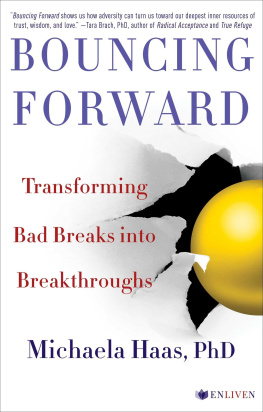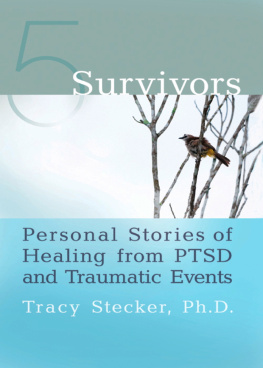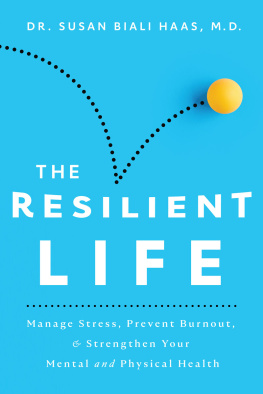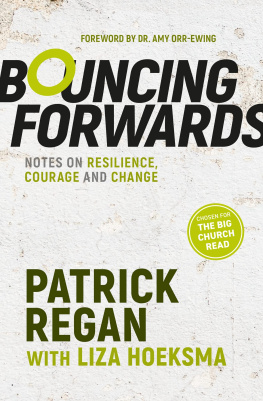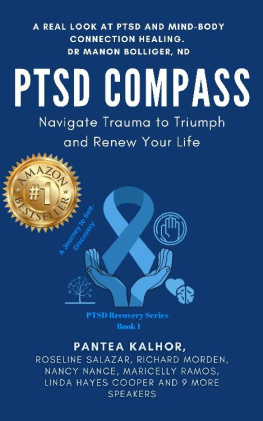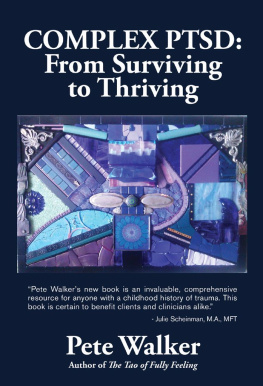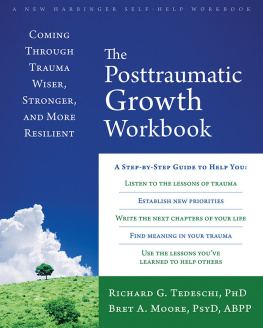Praise for Bouncing Forward
Bouncing Forward shows us how adversity can turn us toward our deepest inner resources of trust, wisdom, and love. Through a wonderful mix of inspirational interviews, current science, Buddhist teachings, and her own deep understanding, Michaela Haas guides us in discovering the sacredness and grace that flows through these human lives.
Tara Brach, PhD, author of Radical Acceptance and True Refuge
In Bouncing Forward , Dr. Haas weaves engaging stories of modern survival with uplifting and often surprising takeaways. Readers are given tools for not only surviving lifes inevitable tough times, but consciously thriving because of them.
Gay Hendricks, PhD, author of The Big Leap and Conscious Loving
Michaela Haass latest book, Bouncing Forward , breaks through our great confusion around how to be happy. Full of goodness, this book shares stories, including her own, of people who have suffered in many ways and come through it into strength and love. Together these varied living examples reveal an important truth: ultimately there is no way to avoid pain in life, and turning toward our challenges, whatever they may be, is the way to real happiness.
Sharon Salzberg, author of Lovingkindness and Real Happiness
Bouncing Forward propels our entire understanding of posttraumatic growth to a new level. Dr. Haass integration of the life stories of survivors-thrivers with the latest scientific research about discovering the advantages of adversity and finding meaning in the messiness, and her very practical tools for working with difficulties, even disasters, shows the reader how to cultivate the mind-set of resilience that can catalyze healing and growth from catastrophe. Brilliant, inspiring, to be read, reread, and treasured.
Linda Graham, MFT, author of Bouncing Back: Rewiring Your Brain for Maximum Resilience and Well-Being
Masterful hybrid of self-help and firsthand history.
Kirkus Reviews
This groundbreaking book offers a path to peace and contentment in the midst of lifes most difficult challenges. Michaela Haas shows us how struggle and trauma can lead to wisdom, growth, and happiness. Bouncing Forward is a rich collection of inspiring and heartfelt interviews, personal recollections, and scientific research. We can train the mind to be resilient and to find lifes blessings no matter what hardships weve faced or are facing. This is a book to treasure and to read over and over.
Toni Bernhard, author of How to Be Sick, How to Wake Up, and How to Live Well with Chronic Pain and Illness
Bouncing Forward is a testament to the strength, resilience, and hope of the human psyche and spirit. Michaela Haas deftly weaves interviews with a dozen individuals from across the world with her experiences, ideas, and guidance, to help readers understand that we are stronger than we think. Bouncing Forward is a wonderful and entertaining read, as well as a reasoned and reasonable guide to resilient living.
Sam Goldstein, PhD, coauthor of The Power of Resilience and Raising Resilient Children
Michaela Haas has written one of the most helpful, engaging, informative nonfiction books that Ive read in a long while. It will be useful for absolutely everyone. Highly recommended.
Samantha Dunn, author of Failing Paris and Not by Accident
Thank you for downloading this Enliven Books/Atria Books eBook.
Join our mailing list and get updates on new releases, deals, bonus content and other great books from Enliven Books/Atria Books and Simon & Schuster.
C LICK H ERE T O S IGN U P
or visit us online to sign up at
eBookNews.SimonandSchuster.com
Contents
This one is for you, Struggling. For you, Drowning.
For you, Surviving. And for you, Rising.
You are my heroes and sheroes.
Introduction
Crisis as a launching pad for growth
When the challenges come, I hope you remember that deep within you is the ability to grow. You are not born with a fixed amount of resilience. Its a muscle you can build up and then draw on when you need it.
SHERYL SANDBERG
D r. Maya Angelou gave me a gift: the title for this book. When asked how she emerged from her violent childhood and rose above poverty and hardship, the poet and civil rights icon called her emergence bouncing forward , going beyond what the naysayers said.
You have probably heard of posttraumatic stress. But beyond the medical community, few are aware of the evidence of posttraumatic growth . It may seem paradoxical even to put the words trauma and growth next to each other in one sentence. And yet, survivors and experts are increasingly focused on the new science that we can not only heal, but benefit from hardship. As someone who has struggled with chronic illness, I myself needed to learn that this is a possibility, and perhaps you chose this book, because you do, too?
The common notion of resilience entails a sense of bouncing back from a severe crisis,original shape falls short. We never forget the ones weve lost or the arduous struggles weve fought. The lives we lead are markedly different before and after a trauma, because these losses and struggles transform and profoundly change us.
This book is not about bouncing back, but rather about bouncing forward . About letting the fire of trauma temper and teach us.
Let me be clear: I am not suggesting in any way that trauma is good or that we need to get over it already. As Cheryl Strayed, bestselling author of Wild , told me when we spoke about her struggle with grief: I hate the word overcome, actually, because it sounds like a negation of the experience. The key to my ability to move on with a sense of life and beauty has to do with the fact that I always carry my suffering with me. Once I learn to say, Yep, here is this part of my life that is sad and hard and unfortunate, I can make room for other things, things like happiness and contentment and peace. In so many ways, I learned to look at that burden, that suffering I had to carry, as a gift, even though it is a gift I would gladly return to the store. The fact is that this gift is mine, and that I need to make something of it. Ive made a lot of progress in my life, in part because I decided to strive to turn that ugly experience into something else, something beautiful.
Of course, we wish we had our loved ones back, that we were not sick, that we didnt experience or witness terror, violence, rape, addiction, accidents, injury, betrayal, poverty, or grief. But in reality, most of us live through five or six traumatic events in our lifetime. One in five Americans has been laid off from their job. Nearly 50 percent of first marriages end in divorce. Over 19 percent of adults nationwide have suffered the death of a child. This year alone, the American Cancer Society estimates that 1.6 million people will be diagnosed with cancer. Yes, traumatic events happen to the best of us. Whether its an everyday crisis, like a divorce or a car crash, or a capital T trauma, like violence or severe illness, it is crucial to know that the trauma is not the end of our story. We cannot control what happens to us, but we can master what matters most: our response to itour mind.
How can we get our lives back?
Here is the most encouraging fact Ive uncovered: We really can do it! Leveraging a crisis as a force for personal development is not reserved for the rare and heroic; in fact, posttraumatic growth is much more common than posttraumatic stress disorder (PTSD), and the stress actually serves as the fuel for the growth. According to Richard Tedeschi, posttraumatic growths leading researcher, as many as 90 percent of survivors experience at least one form of posttraumatic growth, such as a renewed appreciation for life or a deeper connection to their hearts purpose. This does not happen immediately or easily, and rarely by itself. We need to actively work toward positive change, and we need the right tools and support in order to transform a bad break into a breakthrough.
Next page
